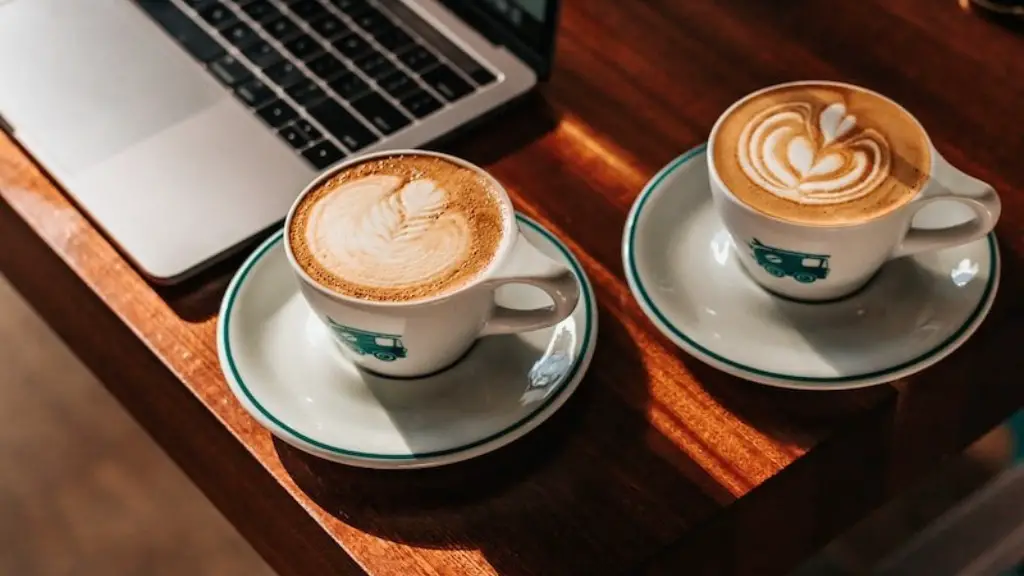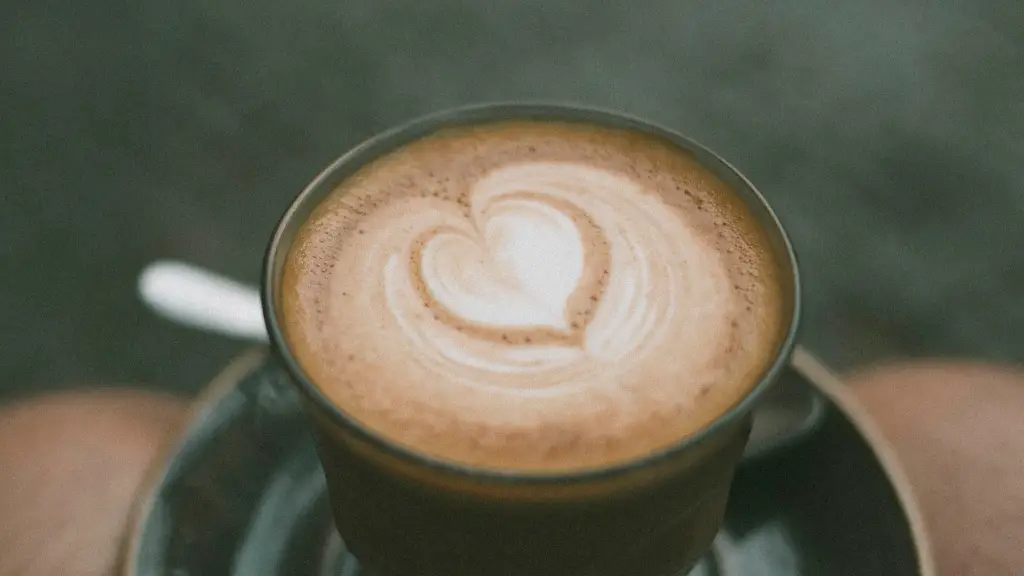Is it OK to Drink Coffee After a Meal?
Coffee is a popular beverage around the world, consumed in many forms and enjoyed by adults and children alike. For some, the comforting warmth of a cup of coffee is the perfect accompaniment to the end of a long day of work or school, while others prefer to enjoy it regularly throughout their day. But is it possible to have too much – and is it ok to drink coffee after a meal?
Experts say that it is actually not ideal to drink coffee directly after eating. Coffee beverages typically contain caffeine, which is a stimulant that can speed up the digestive process, leading to more rapid absorption of food. Furthermore, caffeine has a diuretic effect, working to increase urination and flush out essential minerals and vitamins that are essential for optimal health.
In addition to the potential for an accelerated digestive process and loss of essential vitamins and minerals, coffee can also cause an elevation in stomach acid production, resulting in an increased risk of indigestion and heartburn.
However, while it may not be the ideal time to drink coffee directly after eating, there are some potential benefits to consuming caffeine in the hours following a meal.
Studies have shown that caffeine can actually help to reduce inflammation, which could potentially protect against some forms of cancer. Additionally, some experts believe that caffeine may improve alertness and focus, which could help people to better manage their work or school tasks.
Should I Drink Coffee During or After a Meal?
When considering whether to drink coffee directly after a meal, it is important to take into account the potential benefits and risks associated with doing so. Those who choose to drink coffee during meals should ensure that they are not drinking excessive amounts, and should consider drinking decaffeinated coffee or other non-caffeinated beverages as alternatives.
The best course of action is to wait until 1-2 hours after eating before consuming caffeine. This will give your body ample time to complete its digestion process and absorb essential nutrients. It is also important to take into account the caffeine content in the particular coffee beverage of your choice. If a person is drinking coffee regularly, it is wise to limit their intake to no more than 250-300 mg of caffeine per day, which is equal to about 2-3 large cups of coffee.
Some people prefer to time their coffee consumption around meals, rather than to drink directly after eating. However, research shows that drinking coffee before meals may not necessarily be beneficial either. Studies have linked coffee consumption before meals with increased levels of saturated fats, which could potentially increase the risk of heart disease and stroke. Therefore, coffee should not be consumed within 1-2 hours prior to eating either.
Are There Any Other Alternatives Besides Drinking Coffee After a Meal?
Rather than consuming coffee after a meal, there are several other options available. Chamomile tea, for example, is a caffeine-free beverage that can have calming, soothing effects on those who drink it. Additionally, decaffeinated versions of popular coffee drinks, such as lattes or cappuccinos, are an easy way to enjoy the flavor and aroma of coffee without the potentially harmful effects.
Herbal teas can also be a great choice for those seeking to limit their caffeine intake. These drinks may contain herbs such as chamomile, mint, or lemongrass, which can provide a number of health benefits, including aiding in digestion and providing antioxidants.
Finally, for those seeking to enjoy a more traditional steaming cup of coffee, cold brews may be the perfect option. Cold brews are prepared by steeping ground coffee in cold water for up to 24 hours, resulting in a beverage that is much lower in acidity than a traditional hot cup of coffee.
Tips On How to Avoid Consuming Too Much Coffee After A Meal
Those who choose to drink coffee following a meal should opt for smaller portions and drinks. Additionally, drinking decaffeinated or lightly-caffeinated beverages may help to reduce the ounce of caffeine consumed in one sitting. To further reduce the chances of consuming too much caffeine following a meal, it is important to avoid consuming energy drinks and other caffeinated products that may be higher in caffeine than typical coffee beverages.
Finally, it is important to be mindful of the time of day when consuming coffee. Caffeine tends to produce the most stimulation when consumed in the morning or early afternoon, so it is best to avoid consuming caffeine later in the day to limit the impact on sleep.
How to Avoid the Negative Side Effects of Coffee After A Meal
For those who choose to consume coffee after a meal, it is important to ensure that the coffee beverage contains less than 250-300mg of caffeine per serving. Additionally, it is advisable to wait 1-2 hours after eating before drinking coffee to allow for optimal digestion and nutrient absorption. Those seeking to reduce their overall caffeine consumption can also opt for decaffeinated or lightly caffeinated coffee beverages, herbal teas, or cold brews.
Furthermore, to reduce the risk of negative side effects, it is important to limit the amount of coffee consumed or switch to decaffeinated versions before bedtime. It is also possible to reduce the intake of artificial sweeteners and other additives, which can lead to an increase in sugar levels and an increased risk of developing diabetes and other metabolic disorders.
Can Coffee Help Reduce Stress and Anxiety After A Meal?
Some research has indicated that drinking coffee regularly can help reduce stress and anxiety levels. This is because coffee contains caffeine, which is known to stimulate the brain and increase alertness. Coffee has also been found to reduce the risk of developing depression and has been linked to increased cognitive performance.
However, research has indicated that the ability of coffee to reduce anxiety may vary from person to person. It is important to note that drinking too much coffee can actually lead to more anxiety, as it could increase blood pressure and heart rate, which could lead to increased stress levels.
Furthermore, it is important to factor in other lifestyle choices, such as exercise and proper nutrition, which are key elements in maintaining a healthy mental state and reducing stress.
Conclusion
In conclusion, it is important to consider the potential risks and benefits associated with drinking coffee after a meal. While drinking coffee directly after eating may not be the ideal time to do so, there are potential benefits to drinking coffee in the hours following a meal. However, it is important to be mindful of the potential risks and side effects of consuming too much caffeine, as well as the amount of time it takes to digest and absorb food.
Those who choose to consume coffee following a meal can do so by opting for smaller portions and drinks, drinking decaffeinated or lightly-caffeinated beverages, or switching to herbal teas or cold brews. It is also important to keep track of the intake of artificial sweeteners and to limit caffeine consumption before bedtime. Additionally, it is wise to factor in other lifestyle choices, such as nutrition and exercise, in order to maintain both physical and mental health.





